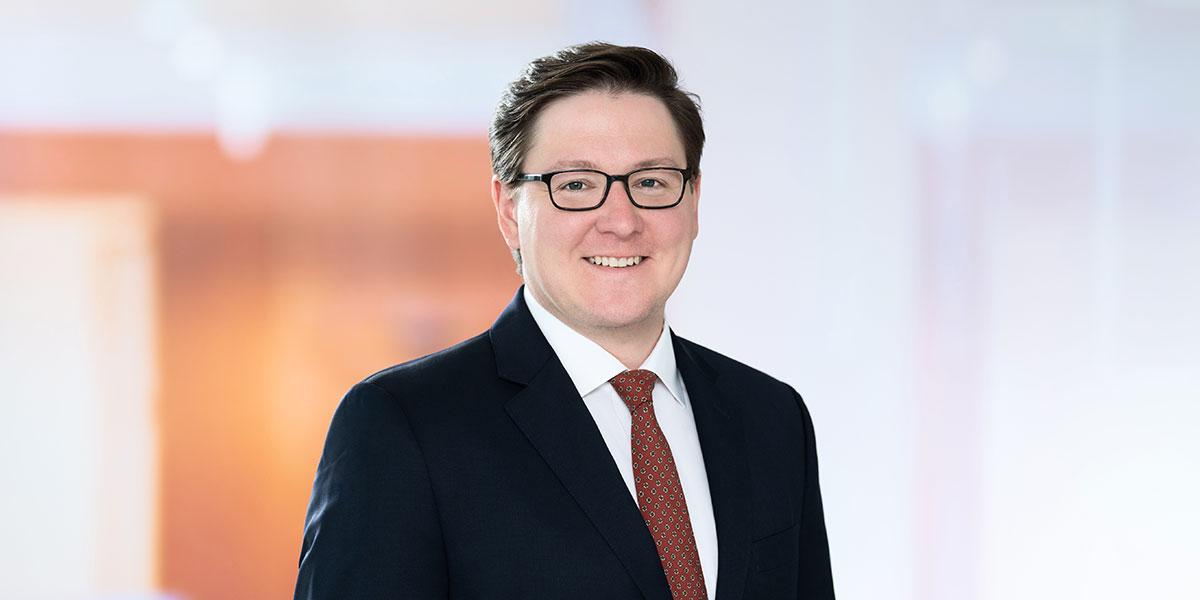
Robert is a patent attorney whose work for clients includes both patent litigation and IP transactions. He is a litigator with experience handling cases before the International Trade Commission (ITC), and the federal district courts. He has been a key member of litigation teams in cases involving semiconductors, software, and other high technology innovations, and also has experience working in the life sciences industry. Robert drafts pleadings, motions, and other court filings, and conducts legal research and reviews patent claim sets and claim enforceability. He also assists with US and international patent due diligence in the context of monetization campaigns, which experience has strengthened his capabilities in handling transactions.
As an IP transactions attorney, Robert conducts due diligence on IP issues involved in a range of transactions for clients with significant portfolios. His work includes analysis of patent and trademark holdings, open source software licenses, and trade secret protections. Deals on which he was a key member of the IP team have been structured as mergers and acquisitions, investments, and various other transactions, representing both buyers and sellers.
While attending law school, Robert worked as an IP litigation paralegal at Mintz. In that role, he assisted attorneys and staff with ITC Section 337 investigations, district court cases, and inter partes reviews before the PTAB.
Prior to attending law school, Robert worked as a paralegal focused on IP issues in the Cambridge, Massachusetts office of a multinational pharmaceutical company, a Boston-based law firm, and a boutique intellectual property law firm.
As an undergraduate, Robert spent a summer working as a legal assistant in the Political Asylum Unit at Greater Boston Legal Services.
viewpoints
Joint Development Agreements and Trade Secrets - Sweat the Small Stuff
April 23, 2025 | Blog | By Brad M Scheller , Robert Sweeney
Learn how a joint development agreement (JDA) can impact trade secret protection, illustrated by Pemco Aircraft and Boeing’s case.
Lost Profits – Who’s Sale is it Anyway?
August 1, 2022 | Blog | By Brad M Scheller , Robert Sweeney
Patent owners can recover lost profits when (1) there is a demand for a patented product, (2) an absence of acceptable non-infringing alternatives, (3) the patentee had the manufacturing and marketing capacity to exploit demand for the product, and (4) the patentee can establish the amount of profit it should have made but-for the accused product. Mentor Graphics Corp. v. EVE-USA, Inc., 851 F.3d 1275, 1285 (Fed. Cir. 2017) (reciting the Panduit factors). An implicit threshold requirement of this legal framework is actually being the entity that earns profits on the patented product.
Rule 11—Use It Wisely
July 20, 2022 | Blog | By Brad M Scheller , Robert Sweeney
The power of Rule 11 – as with any weapon – must be employed diligently and with good judgment, as recently reiterated by the Northern District of Ohio.
Rule 11 Sanctions Appropriate for Frivolous Inventorship Pleading
July 13, 2022 | Blog | By Michael Renaud, Brad M Scheller , Robert Sweeney
While litigants may oft use Rule 11 prematurely or inappropriately, it does have its proper time and place when deployed as intended. In the patent context, examples include when claim elements are clearly missing in an accused product but a patent owner refuses to withdraw infringement allegations or, conversely, when a defendant continues to contest infringement when all claim limitations are clearly present in the accused product. Rule 11 grounds also arise in different contexts, as in the recent case of Imprenta Services, Inc.v. Karll.
Keep Out: Uniloc Gets Second Chance to Seal Licensing Documents
February 16, 2022 | Blog | By Daniel Weinger, Robert Sweeney
Prior Daubert Orders and Discovery Lessons Out of N.D. Cal.
February 4, 2022 | Blog | By Peter Snell, Robert Sweeney
A recent order from the Northern District of California in Edwards Lifesciences Corp. v. Meril Life Sciences Pvt. Ltd., No. 19-cv-06593 (Jan. 27, 2022) (“Edwards”), provides guidance regarding the ability (or inability) to use a prior Daubert ruling to discredit an expert witness at trial when such a ruling arose within the context of a different case. In addition, the order highlights a pitfall that can arise when an opposing party produces deficient damages-related discovery but is not pressed to supplement its discovery through a motion to compel.
Entire Market Value Rule Strikes Again in WDTX
January 19, 2022 | Blog | By Brad M Scheller , Marguerite McConihe, Robert Sweeney
On January 3, 2022, Magistrate Judge Susan Hightower granted a defendant’s motion to exclude an expert’s damages theory for violating the entire market value rule, reminding plaintiffs everywhere to use caution when applying the sales of an entire product as a royalty base.
News & Press
Of Counsel Carolina Säve and Associate Bobby Sweeney wrote an article in the Boston Bar Journal addressing software-related IP considerations in transactions. The piece addresses why it is essential for both buyers and sellers to be aware and proactive to minimize associated risk.




